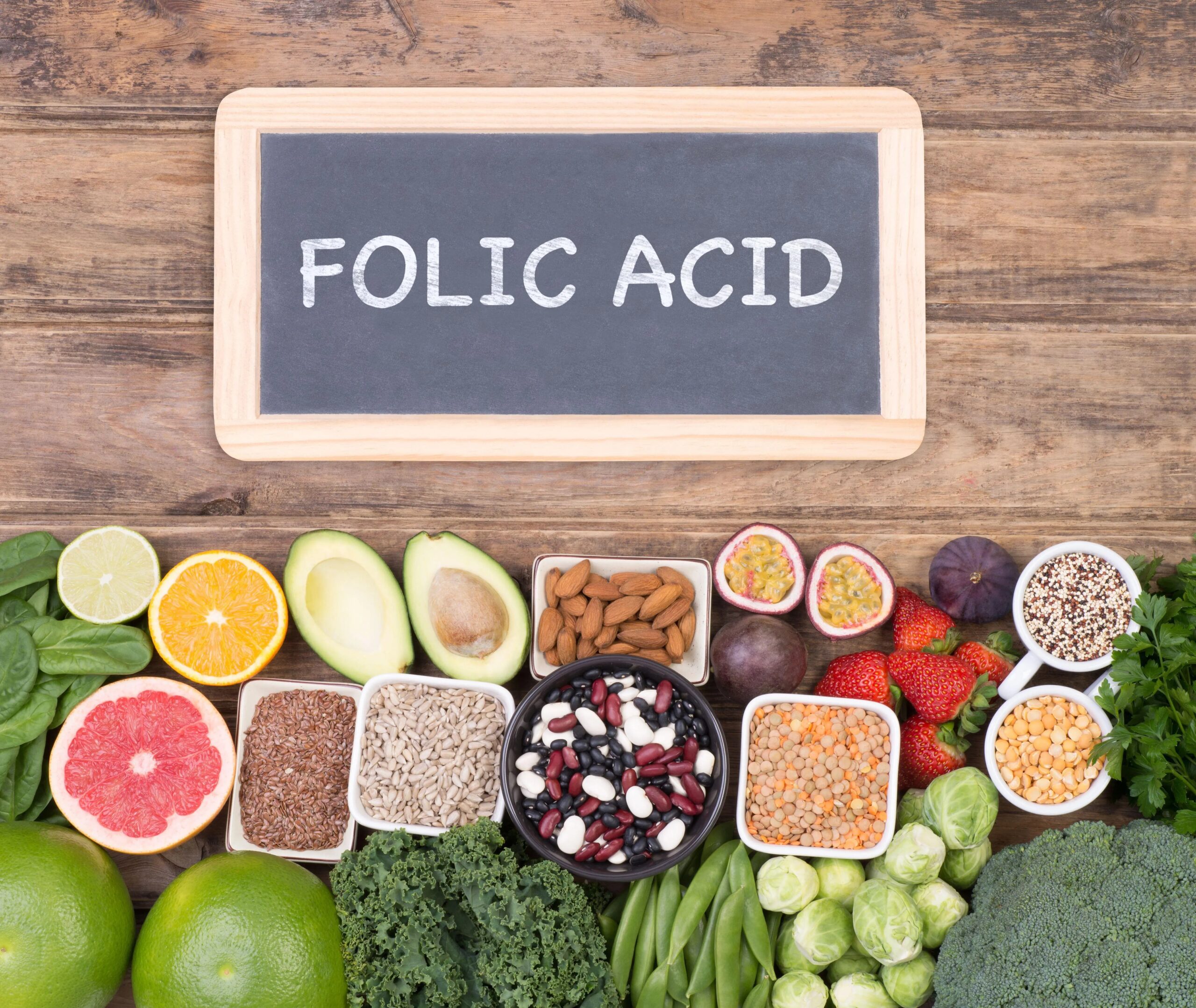Folic acid, also known as folate or vitamin B9, is a water-soluble vitamin that plays a crucial role in various bodily functions, including cell division, DNA synthesis, and red blood cell formation. It is an essential nutrient that is particularly important for pregnant women, as it helps prevent birth defects and supports fetal development. In this comprehensive guide, we’ll explore the benefits, food sources, deficiency symptoms, supplementation, and more related to folic acid.
What is Folic Acid?
Folic acid is a synthetic form of folate, a naturally occurring B vitamin found in foods. Folate is essential for the synthesis of DNA, RNA, and proteins, making it crucial for cell division and growth. Folic acid is commonly used in dietary supplements and fortified foods due to its stability and bioavailability.
Benefits of Folic Acid:
Prevents Neural Tube Defects
Perhaps the most well-known benefit of folic acid is its role in preventing neural tube defects (NTDs) such as spina bifida and anencephaly. Adequate folic acid intake before and during pregnancy is essential for proper neural tube closure and healthy fetal development.
Supports Red Blood Cell Formation
Folic acid is involved in the production of red blood cells, which are responsible for carrying oxygen throughout the body. A deficiency in folic acid can lead to megaloblastic anemia, a condition characterized by large, immature red blood cells.
Supports Mental Health
Folic acid plays a role in neurotransmitter synthesis and regulation, which may have implications for mental health. Some research suggests that adequate folic acid intake may help reduce the risk of depression and improve mood.
Supports Heart Health
Folic acid may help lower levels of homocysteine, an amino acid that, when elevated, is associated with an increased risk of heart disease and stroke. By lowering homocysteine levels, folic acid may help support cardiovascular health.
Supports Healthy Pregnancy
In addition to preventing neural tube defects, folic acid is important for overall maternal health during pregnancy. It helps prevent preeclampsia, supports placental function, and reduces the risk of other birth defects such as cleft lip and palate.
Food Sources of Folic Acid
Folic acid is found naturally in a variety of foods, particularly leafy green vegetables, legumes, and fortified grains. Some of the best food sources of folic acid include:
- Leafy greens: Spinach, kale, collard greens, and turnip greens are rich sources of folate.
- Legumes: Lentils, chickpeas, black beans, and kidney beans are high in folate.
- Fortified grains: Many cereals, bread, and pasta products are fortified with folic acid.
- Citrus fruits: Oranges, grapefruits, and lemons contain small amounts of folate.
- Avocado: Avocado is a good source of folate, as well as other essential nutrients.
Folic Acid Deficiency
Folic acid deficiency can lead to a variety of health problems, including anemia, birth defects, and neurological disorders. Symptoms of folic acid deficiency may include:
- Megaloblastic anemia: A condition characterized by large, immature red blood cells, resulting in fatigue, weakness, and shortness of breath.
- Neural tube defects: Birth defects affecting the brain and spinal cord, such as spina bifida and anencephaly.
- Poor growth: In children, folic acid deficiency can lead to poor growth and development.
- Gastrointestinal symptoms: Including diarrhea, nausea, and loss of appetite.
Supplementation
While folic acid can be obtained through diet, supplementation may be necessary in certain cases, such as during pregnancy or for individuals with malabsorption issues. The recommended daily intake of folic acid varies depending on age, gender, and life stage. Pregnant women, for example, are advised to take 400-800 micrograms of folic acid daily to reduce the risk of neural tube defects.
Safety and Precautions
While folic acid is generally considered safe when taken at recommended doses, excessive intake may have adverse effects, particularly in individuals with certain medical conditions. High doses of folic acid can mask vitamin B12 deficiency and may increase the risk of certain cancers. It’s essential to consult with a healthcare professional before starting folic acid supplementation, especially if you have underlying health conditions or are pregnant.
Conclusion
Folic acid is an essential nutrient that plays a critical role in various bodily functions, including cell division, DNA synthesis, and red blood cell formation. Adequate intake of folic acid is particularly important for pregnant women, as it helps prevent neural tube defects and supports fetal development. While folic acid can be obtained through diet, supplementation may be necessary in certain cases to ensure optimal intake. By incorporating folate-rich foods into your diet and following recommended supplementation guidelines, you can support overall health and well-being at every stage of life.
- Benefits of Brahmi Supplements - April 2, 2024
- Benefits of Bonset Supplements - April 2, 2024
- Benefits of Blessed Thistle Supplements - April 2, 2024



